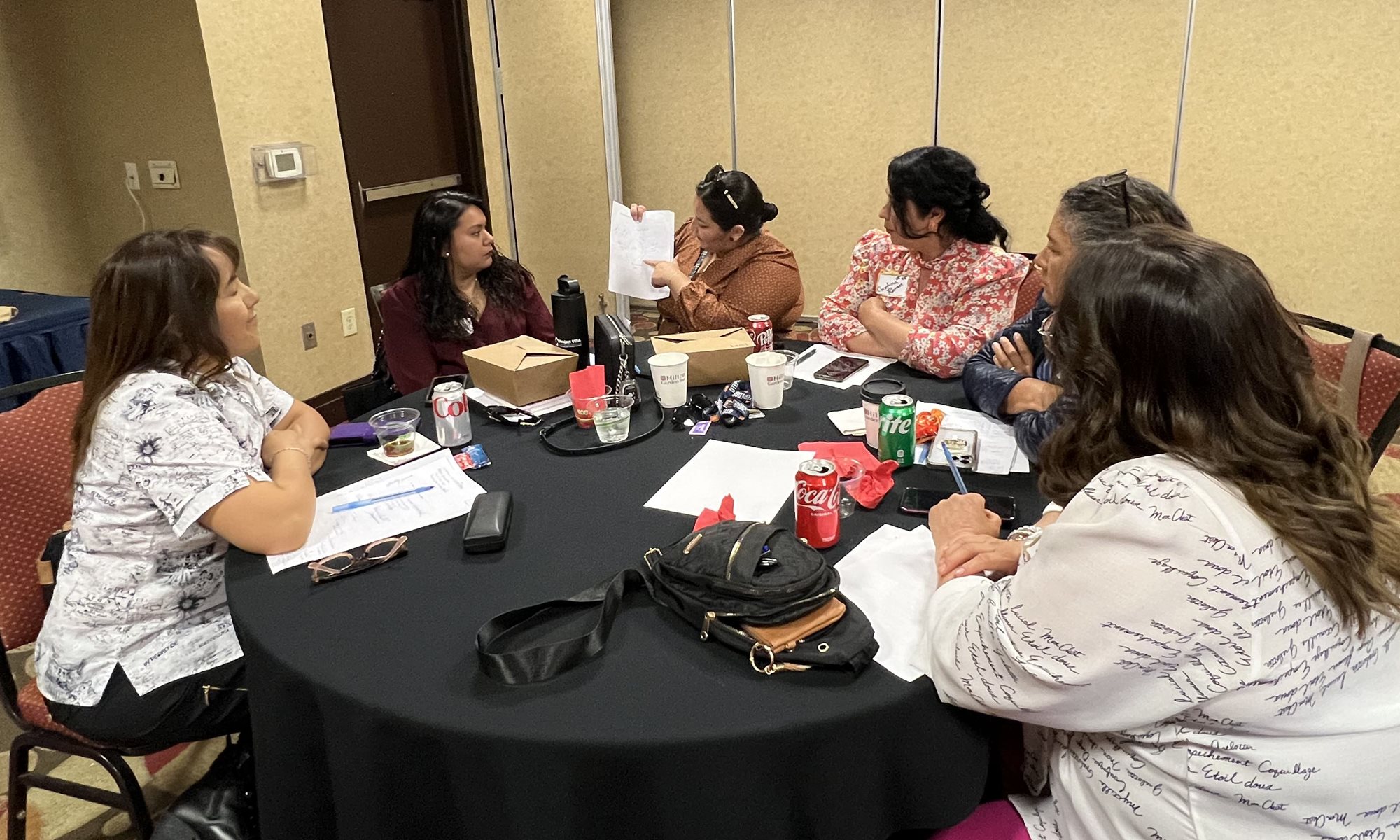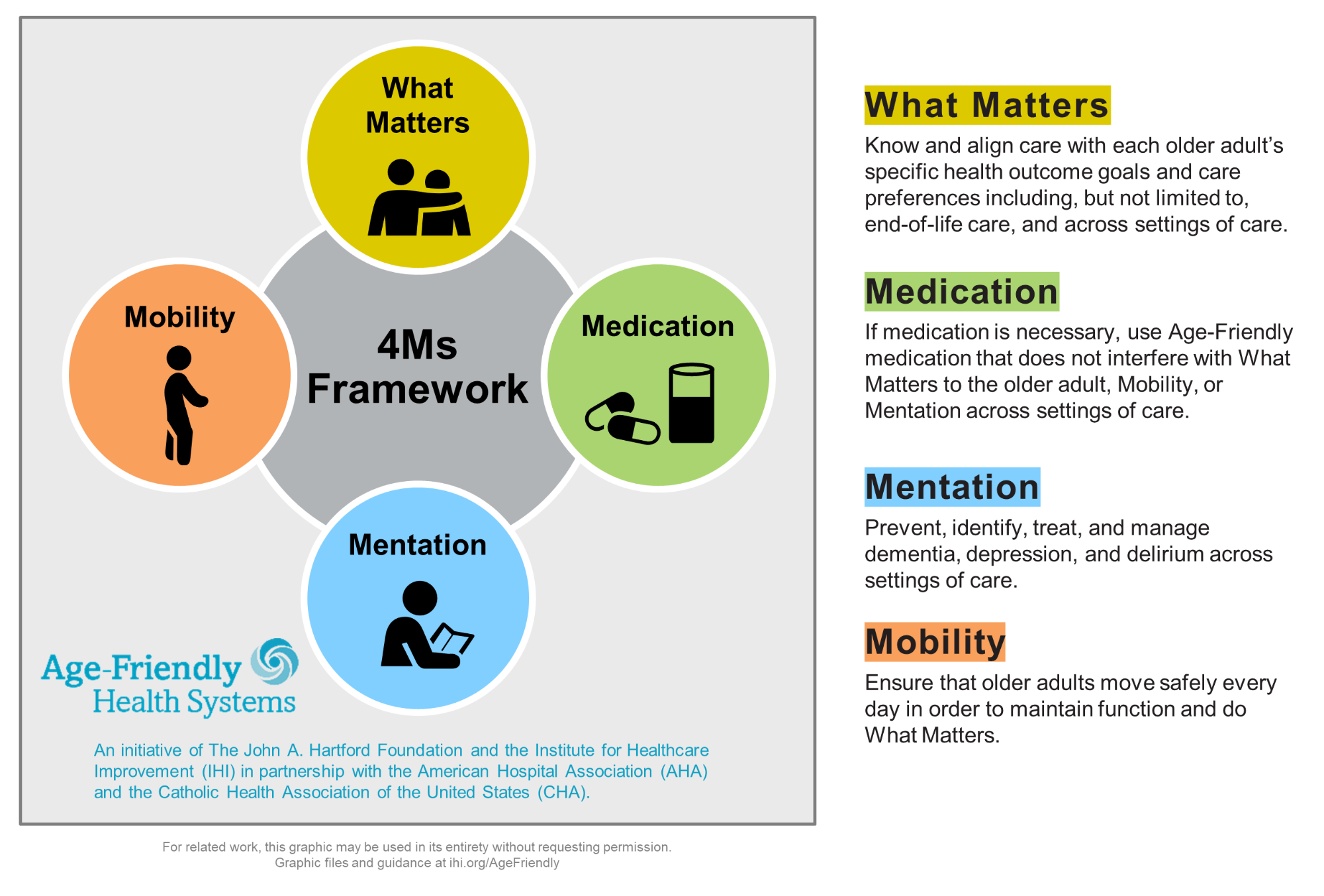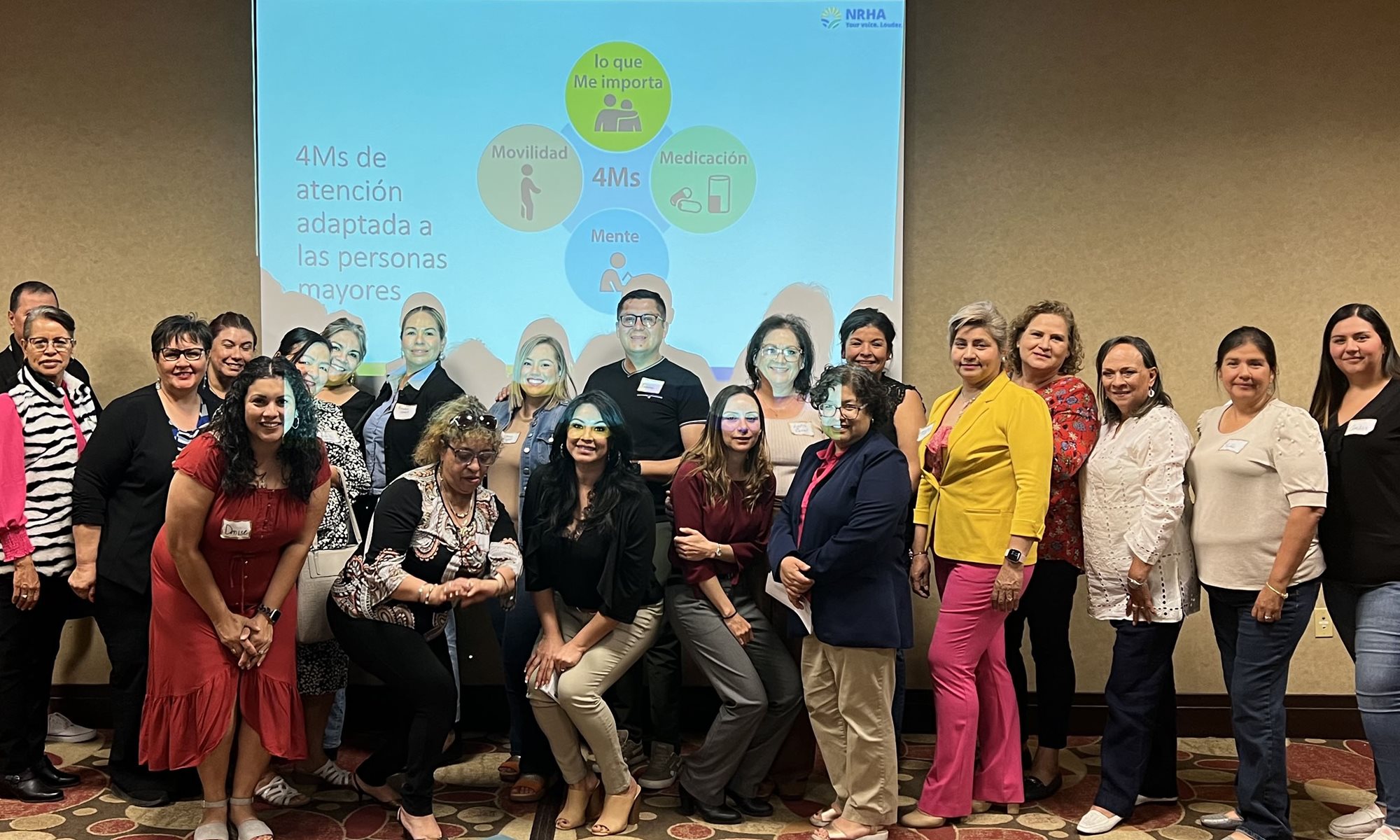Promotoras de salud: Helping community health workers care for older adults
In the sprawling Texas plains, one rural community can look very different from the next. When it comes to health care access, older adults in this region still share common challenges, with inability to pay for care, hospital closures, and distance from providers cited as top concerns. Along the United States-Mexico border, many residents live in multigenerational households and speak Spanish as a first language, which can create additional barriers to care.
Because of the varied cultural influences and unique geographies in small towns across the Lone Star State, a one-size-fits-all approach to health care can’t effectively reach the growing number of rural adults over the age of 65. That’s why community health workers (CHW), commonly known as “promotoras de salud” along border regions and in Spanish-speaking communities, have taken a prominent role in helping care for older adults and educate caregivers in rural areas.
 |
Numbering nearly 6,000 in Texas alone, CHWs are trusted community members who receive training and certification to provide basic health care services, make care referrals, and connect patients to resources. They often know their clients personally and visit their homes, putting them in an ideal position to identify older adults’ needs and improve their quality of life.
“CHWs are members of the communities they serve, so they share the same culture, experiences, and language,” says Laura Howell Nelson, project director at the Institute for Healthcare Improvement (IHI). “They are in a unique position to spread evidence-based care in the homes of older adults and caregivers in a way that I don’t think other care providers are able to do.”
"CHWs are members of the communities they serve, so they share the same culture, experiences, and language." – Laura Howell Nelson |
To help CHWs in rural West Texas hone their focus on caring for older adults, The John A. Hartford Foundation partnered with IHI, the University of Texas at Arlington (UTA), and the National Rural Health Association (NRHA) to offer age-friendly health system training to approximately 100 CHWs in El Paso and virtually earlier this year. CHWs received continuing education credit for attending the session, which was certified by the Texas Department of Health and was the first of its kind in the area specifically focused on older adults.
“It’s important to partner with NRHA because only 7 percent of recognized age-friendly health systems are in rural geographies,” Nelson says. “We wanted to reach more care locations, and community health workers are such a vital piece of the community and the care team – they are the experts there.”
 |
The training was offered in English and Spanish and primarily focused on the age-friendly health systems framework, which helps assess and address critical issues in the care of older adults across settings and transitions of care. A key piece of the age-friendly movement is what is known as the 4Ms, which encourage health care providers to consider the following evidence-based guidelines when caring for older adults:
• What matters: Align care with each older adult’s specific health outcome goals and care preferences.
• Medication: Use age-friendly medications that don’t interfere with what matters, mentation, or mobility.
• Mind: Screen for and treat depression, delirium, and dementia.
• Mobility: Keep older adults moving at their highest level possible.
"It’s important to partner with NRHA because only 7 – Laura Howell Nelson |
“With this training we discussed how to identify every point where a CHW may have an opportunity to incorporate one of the 4Ms into their work,” says Denise Hernandez, UTA assistant professor and Dallas-Ft. Worth Community Health Worker Association executive director. “We encouraged them to think throughout their day about opportunities to ask older adults what matters to them or about their mentation or medication.”
The training included role playing to help CHWs talk to older adults about mentation in particular, as many older adults are afraid to discuss cognitive issues with their doctor. Empowering the CHWs helps them empower their patients to make informed decisions about their ability to live at home or with family and get the care they need. Regular contact with CHWs also helps older adults establish a meaningful relationship with a health care provider.
 |
| 4Ms framework of an age-friendly health system |
“Something we’re seeing in rural geographies is a lot of provider turnover,” Nelson says. “For older adults a significant part of their care process is having trusted relationships with providers, and that can be really challenging in rural areas. CHWs can help fill that gap for older adults and their caregivers.”
“We also focus on the importance of health literacy,” Hernandez adds. “It’s always a focus of CHW training, but I think it’s very important here also because older populations have lower literacy levels. Making sure that’s part of every interaction with older adults is a key component of their work.”
"I’m excited to see the impact this will make in communities both for CHWs and older adults." – Denise Hernandez |
Going forward, Hernandez and Nelson hope to expand this training to other areas of the country, partner with other programs, and adapt the curriculum to the communities those CHWs serve, enabling more older adults and CHWs to get to what matters.
“Oftentimes in the CHW world we do a lot of chronic disease management – diabetes, high blood pressure, cardiac disease,” Hernandez says. “I’m looking forward to seeing how more CHWs receive this training that focuses on an approach to interacting with their patients and clients regardless of their health issue.”
 |
“Growing up in a rural community, I wish we had CHWs who knew the 4Ms when my grandparents needed care so they could have stayed in their home, which they loved,” Nelson adds. “I’m excited to see the impact this will make in communities both for CHWs and older adults.”
The National Rural Age-Friendly Initiative is a joint effort between the National Rural Health Association and The John A. Hartford Foundation to develop resources, partnerships, and strategies to build age-friendly care for the one in five older adults living in rural geographies.
Age-Friendly Health Systems is an initiative of The John A. Hartford Foundation and the Institute for Healthcare Improvement designed to meet the challenge of expanding age-friendly care head on.
